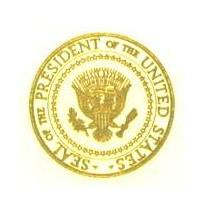
The U.S. patent system has long been known to be an innovation engine and a proven catalyst of prosperity and jobs. From its creation, the U.S. has built its economy on the foundation of intellectual property and this point is particularly relevant in economic down times.
Abraham Lincoln remarked in 1859 that the U.S. Constitution set out patents as a fundamental right, the only time that the word “right” was used in the document.
“To promote the progress of science and useful arts, by securing for limited times to authors and inventors the exclusive right to their respective writings and discoveries.” (Article 1, Section 8, clause 8.)
Lincoln knew that innovation was the most powerful driver to the country’s well-being. Lincoln remarked, “The patent system changed this … and thereby added the fuel of interest to the fire of genius in the discovery and production of new and useful things.”
Proclamation 5013 by President Ronald Reagan:
Almost two hundred years ago, President George Washington recognized that invention and innovation were fundamental to the welfare and strength of the United States. He successfully urged the First Congress to enact a patent statute as expressly authorized by the U.S. Constitution and wisely advised that “there is nothing which can better deserve your patronage than the promotion of science . . .” In 1790, the first patent statute initiated the transformation of the United States from an importer of technology to a world leader in technological innovation.
Today, just as in George Washington’s day, inventors are the keystone of the technological progress that is so vital to the economic, environmental, and social well-being of this country. Individual ingenuity and perseverance, spurred by the incentives of the patent system, begin the process that results in improved standards of living, increased public and private productivity, creation of new industries, improved public services, and enhanced competitiveness of American products in world markets.
In recognition of the enormous contribution inventors make to the nation and the world, the Congress, pursuant to Senate Joint Resolution 140 (Public Law 97 – 198), has designated February 11, 1983, the anniversary of the birth of Thomas Alva Edison, one of America’s most famous and prolific inventors, as National Inventors’ Day. Such recognition is especially appropriate at a time when our country is striving to maintain its global position as a leader in innovation and technology. Key to our future success will be the dedication and creativity of inventors.
Now, Therefore, I, Ronald Reagan, President of the United States of America, do hereby proclaim February 11, 1983, as National Inventors’ Day and call upon the people of the United States to observe this day with appropriate ceremonies and activities.
In Witness Whereof, I have hereunto set my hand this 12th day of Jan., in the year of our Lord nineteen hundred and eighty-three, and of the Independence of the United States of America the two hundred and seventh.
Ronald Reagan
Make it a point to celebrate National Inventors’ Day. As Edison exclaimed: “There’s a way to do it better. Find it.”
